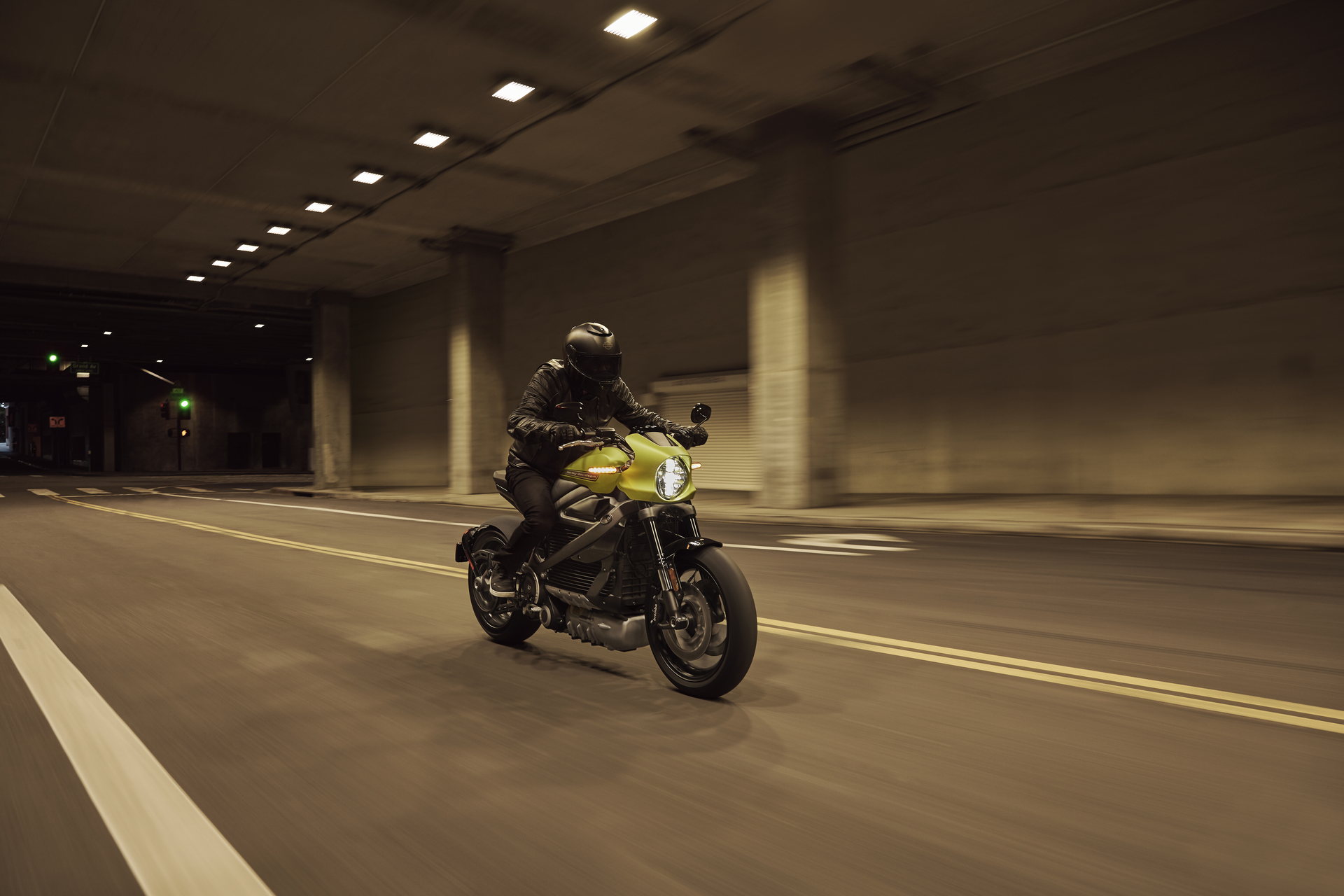
So you want to buy an electric motorcycle. Congratulations, and welcome to the future. In this electric motorcycles buyer’s guide, you’ll find the key information you’ll need to find a good purchase, make the most of your it, and avoid the most common pitfalls.
Electric motorcycles are set to take over two-wheeled transportation, but that doesn’t mean they’re going to completely replace ICE models anytime soon. In fact, we’re pretty early on the adoption curve, meaning you won’t find good electric motorbikes at every dealer. If you’re just looking for some buyer recommendations, we’ve put together a list of the best electric motorcycles you can buy today.
Let’s dive in our electric motorcycles buyer’s guide.
Also read: Tesla Motorcycle: Why there may never be one, best concepts, and competitors
First, what is an electric motorcycle?
Simply put, electric motorcycles swap the internal combustion engines we all know for electric motors. The source of energy is a Lithium-ion battery rather than a tank of gas, but other than that, electric motorcycles are pretty similar to their ICE counterparts.
Electric motorcycles come in all shapes and sizes and are produced by a multitude of manufacturers. Regardless of their construction, you’ll still need the appropriate license, insurance, and other paperwork to ride one, just like with any old motorbike.
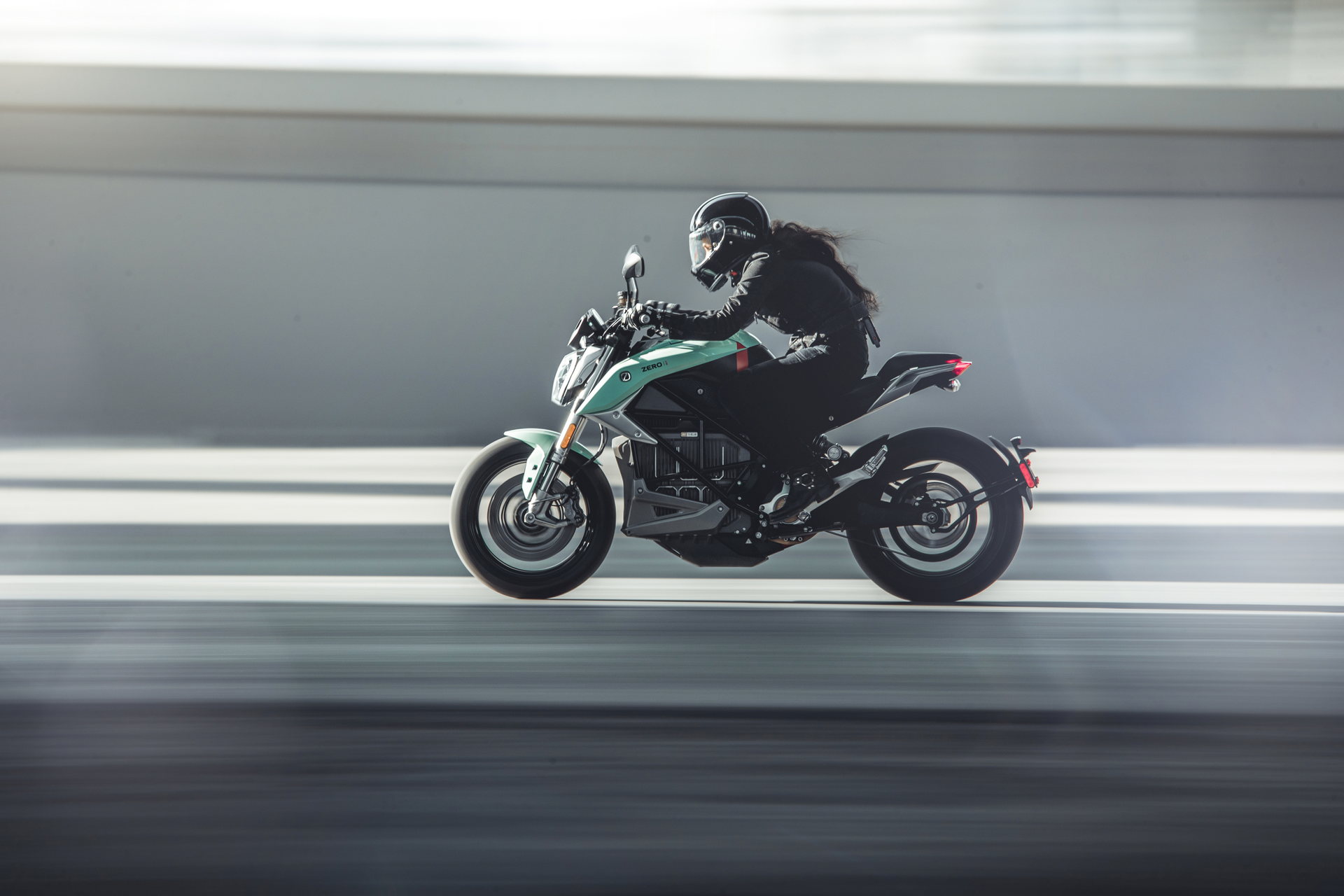
What’s the difference between electric motorcycles, electric bicycles, electric scooters, and electric mopeds?
The lines can get a bit fuzzy, but here’s a breakdown:
- Electric motorcycles are the two-wheeled personal vehicles that reach the highest speeds and ranges, thanks to powerful motors and large battery packs. Electric motorcycles require a driving license and you can only ride them on roads, as opposed to bike paths or sidewalks. This category includes electric dirt bikes, which is one of the most popular types of electric motorcycles around.
- Electric mopeds (sometimes known, confusingly, as electric scooters) sit below motorcycles in terms of size, speed, and range. They usually have a step-through frame, smaller wheels, and a less performant motor. Depending on your jurisdiction and the power of the electric moped, you may be able to ride one without a motorcycle-class driving license, or even any license at all.
- Electric scooters are the small, deck-equipped vehicles that have become ubiquitous in many cities thanks to sharing services like Lime and Bird. Similar to kick-scooters, these are meant to be ridden standing. They have small wheels and limited range, but on the flip side, they sometimes can be ridden on sidewalks and they’re easy to carry around.
- Electric bikes add a battery and an electric motor to a conventional pedal-powered bicycle. Thanks to this, they can achieve impressive speeds, but they can still be used as a normal bike when the battery dies out. Some models look almost identical to conventional bicycles, though they tend to be much heavier.
Also read: The best electric scooters around
How much does an electric motorcycle cost?
Like with conventional motorcycles, there’s something for every budget. That said, electric motorcycles do tend to be relatively more expensive than ICE models, simply because the options are far more limited. And, like with everything else in life, you get what you pay for.
On the budget end, something like the urban-focused CSC City Slicker (216lbs, 62mi range, 46.6mph top speed) can be had for as little as $2,500 in the US. The Segway Dirt eBike (121.3lbs, 74.6mi range, 46.6mph top speed) meanwhile costs $3,500.
If you want something beefier, the well-established Zero electric motorcycles company offers the Zero FXS (293lbs, 100mi range, 85mph top speed) for $10,495 in the base configuration.
On the high end, the Harley-Davidson Livewire (549lbs, 146mi range, 110mph top speed) hits an eye-watering $29,799 price tage. And Zero’s SR/S electric motorcycle (505lbs, 161mi range, 124mph top speed) starts from $19,995. Of course, if your bank account allows it, there’s more exotic fare out there that goes beyond the $100,000 mark, like the troubled Arc Vector.
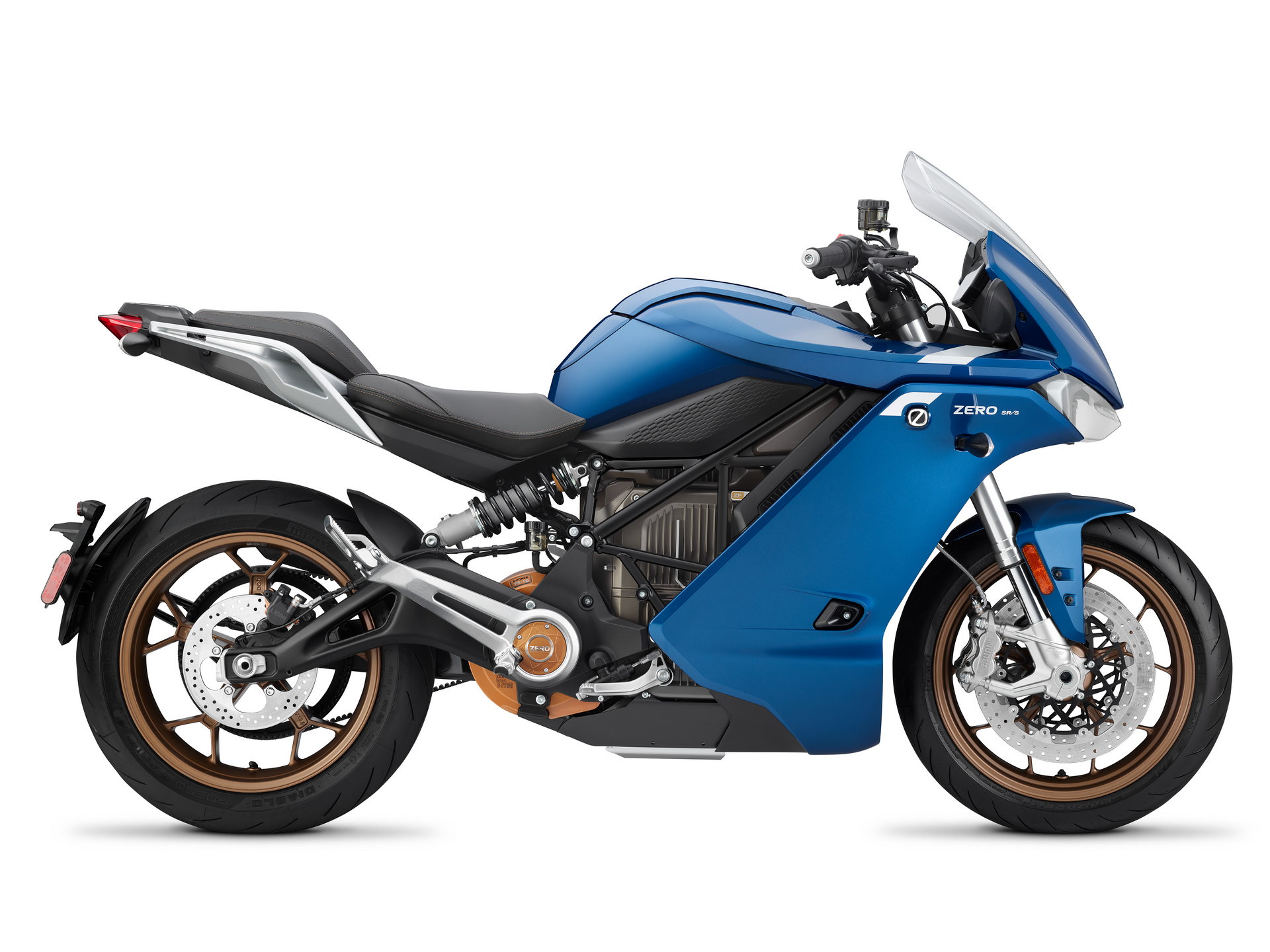
What are the top electric motorcycle manufacturers?
Some of the biggest brands in the electric motorcycles industry are:
- Zero Motorcycles – Established in 2006 in California, Zero is probably the best-known electric motorcycles company. It currently offers around ten models across its street, street racing, Supermoto, and sport lines.
- Harley-Davidson – The legendary American manufacturer needs no introduction. Harley has recently entered the electric motorcycle market with the Harley-Davidson Livewire. The company plans to start a dedicated division for electric two-wheelers, so electric Harleys are here to stay.
- Lightning Motorcycles – California-based Lightning made a name for itself with records on the Bonneville Salt Flats and at Pikes Peak. The 2019 Lightning Strike is the company’s first electric motorcycle for the broad market, with a starting price of $13,000.
- Energica Motor Company – Hailing from the same region of Italy that gave the world Ferrari, Lamborghini, and Ducati, Energica focuses on supersport electric motorcycles. The company benefits from its affiliation to CRP Group, an automotive technology and manufacturing supplier.
- KTM – Off-road motorbike giant KTM has thrown its weight behind the electric revolution with its Freeride E-XC electric dirt bike. Hopefully the company will expand into other categories in the future.
- Evoke Motorcycles – Beijing-based Evoke claims to be “Asia’s fastest electric propulsion motorcycles” manufacturer. Its highlight tech spec is the ultra-fast charging technology, which can juice up a motorcycle battery in as little as 15 minutes.
- Segway Ninebot – Mostly known for its self-balancing scooters, Segway has expanded into electric scooters and electric dirt bikes.
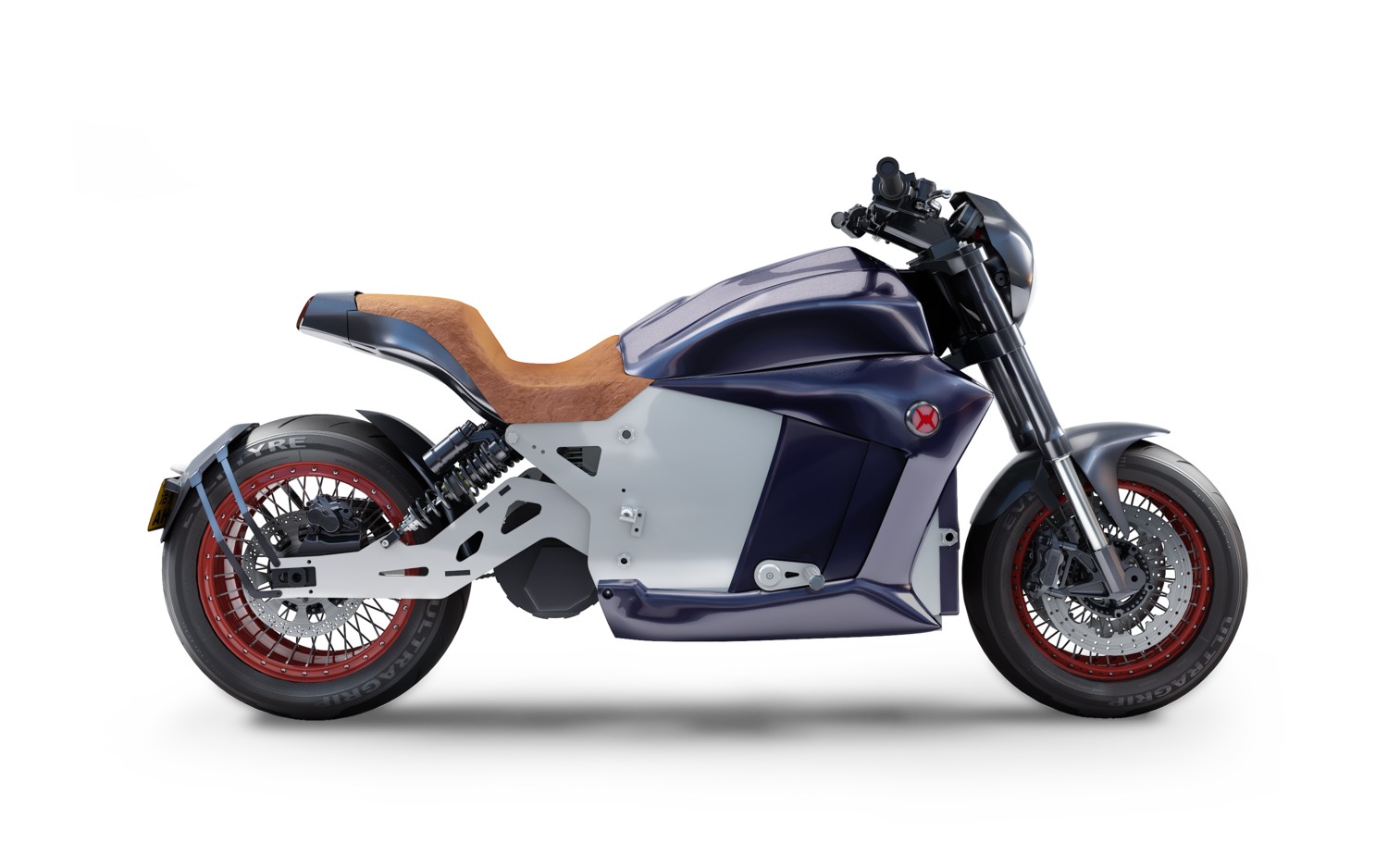
What are the benefits of owning an electric motorcycle?
People want to buy electric motorcycles from a variety of reasons.
First off, going “green” is important for a growing number of people. With more and more of the global electricity mix being generated from sustainable sources, battery-powered vehicles help reduce emissions and keep the air cleaner compared to their gas-guzzling counterparts.
However, gone are the days when only the climate-conscious seriously cared about EVs. Owning an electric motorcycle has palpable benefits, including some financial ones.
For one, depending on the prices of electricity and fuel in your area, using an electric motorcycle can be cheaper than an ICE one. That goes beyond the fuel cost – many locales offer reduced taxes and other incentives for green vehicles.
Electric motorcycles can be cheaper to operate than ICE models, owning to their simpler construction. There are fewer components, hence less stuff that can break or that needs to be maintained and replaced. All you’ll need to worry about is brake pads and tires.
Electric motorcycles are less noisy than petrol-powered bikes, which improves comfort and allows you to ride them in areas where loud ICE engines are considered a nuisance.
Like electric cars, electric motorcycles have instant torque – in fact, maximum torque is achieved at 0 RPM. Thanks to this, even cheaper electric motorbikes can dash from the stoplight, and beat more powerful and expensive ICE motorcycles in the process.
Finally, if the thought of shifting gears on a motorcycle scares you, you’ll be happy to hear electric motorbikes don’t have any gears, making them easier to ride even by beginners.
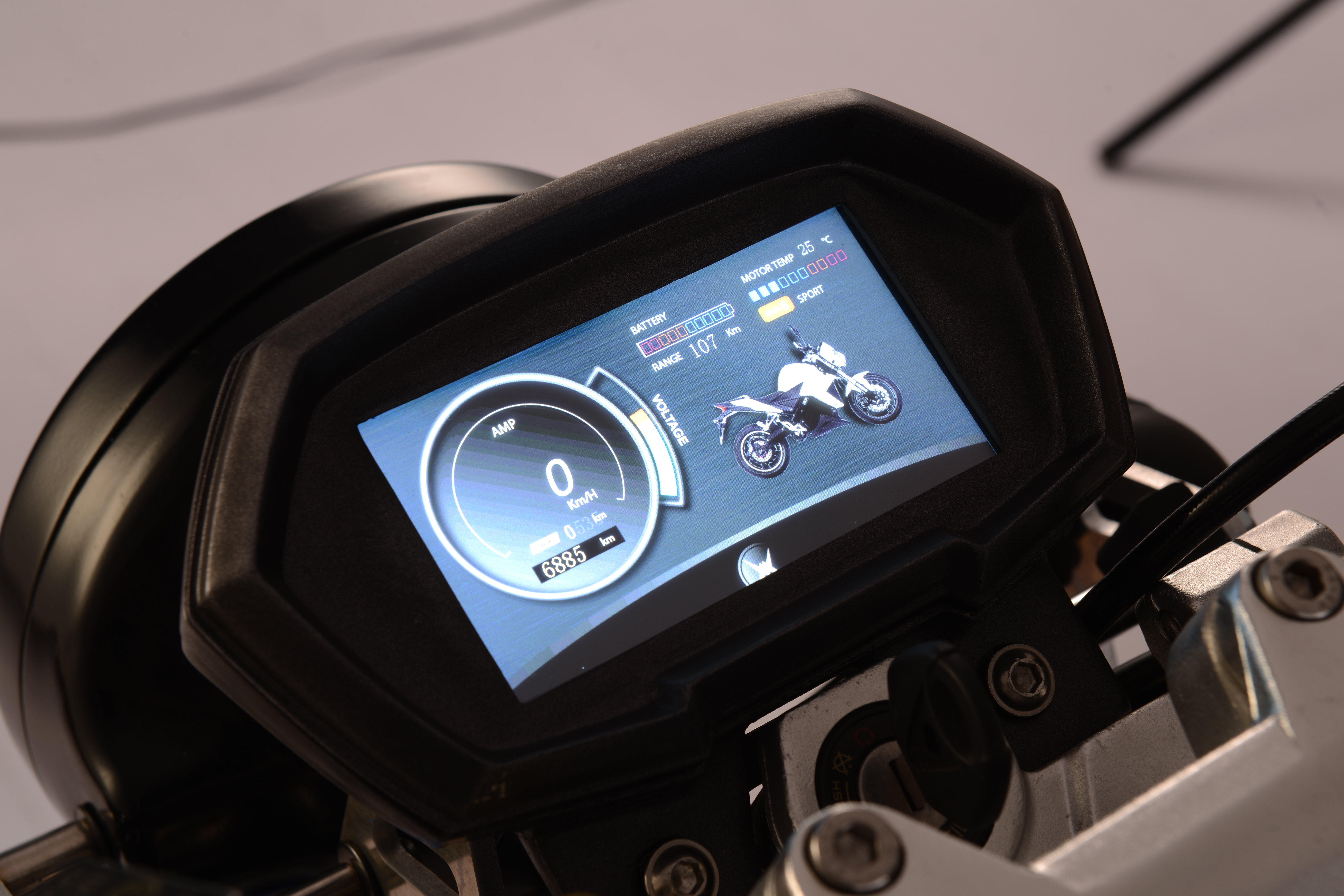
What about electric motorcycle disadvantages?
Of course, no technology is perfect and even if there was one, people may have subjective reasons to prefer another. It’s the same with electric two-wheelers.
First up, range. You’ve probably heard of the term “range anxiety” in relation to cars – that dreaded feeling of not knowing whether you’ll make it to your destination or the next charging station before your battery dies out. It’s the same for electric motorcycles. This may not be an issue for you – for example, if you only ever ride around the city and have a charger at home or somewhere easily accessible, then the range afforded by your motorbike will be more than sufficient. If you tend to cruise with your bike over long distances, it’s a different story. That’s the reason there aren’t many electric cruisers out there.
The good news is modern battery technology is getting better all the time – and so is the charging infrastructure around the world.
Charging time may be another issue – you just can’t get a quick fill-up like you can with a gas tank. While some manufacturers, like Evoke, offer quick charging tech, you’ll still need to carefully plan your trips ahead.
Upfront cost and competition are another issue. There simply aren’t that many electric motorcycles out there, and less choice means less competition, and a worse deal for buyer. The situation is improving though, as more manufacturers, including giants like Honda and Yamaha are waking up to the new reality of EVs. As for the cost, the higher upfront cost is offset by the lower costs with power and maintenance.
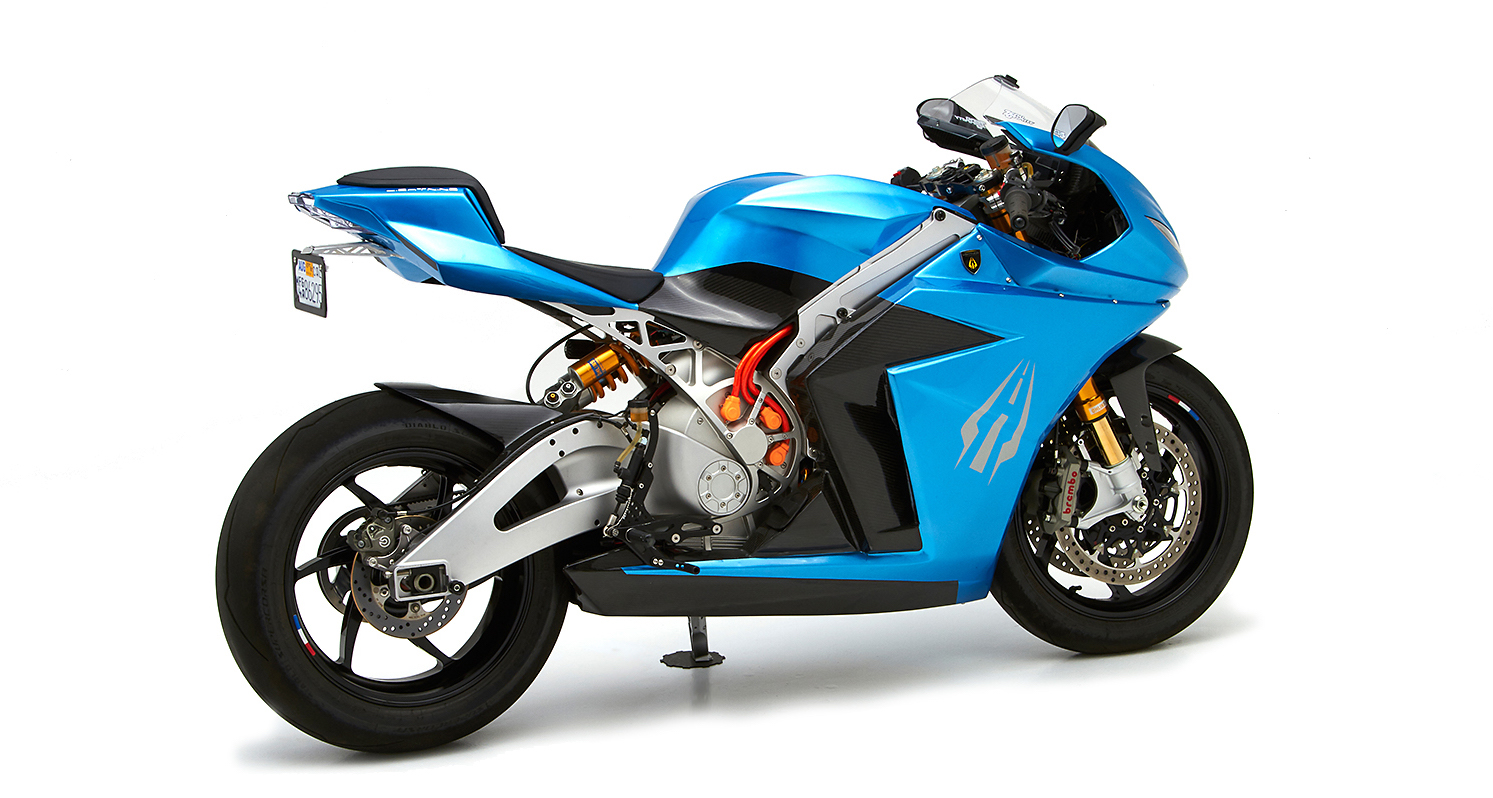
License, insurance, legality, and other fine print
As far as the law is concerned, your electric motorcycle is just another motorcycle. You’ll probably still need a special license to ride one, and you’ll still need insurance. Each country or state has its own set of rules, so it’s worth doing some research before plopping down the cash for a new motorbike. Pay attention to things that could play in your favor – some countries will waive certain taxes and fees for electric motorcycles, or you may even qualify for subsidies.
If you buy an electric motorcycle from an established manufacturer – i.e. you don’t buy a homemade conversion – you won’t need to worry about the bike not being street legal. The one exception is electric dirt bikes, which may not come equipped with legally mandated features like rearview mirrors, headlights or taillights. Check your jurisdiction’s requirements before you take an electric dirt bike out on the road.
Should I buy an electric motorcycle now or wait?
First, you’ll need to know what kind of motorcycle you want in general. The “electric” qualifier only comes on top of that. Do you want a city motorcycle or something with longer range? Do you want to rip through dirt tracks, or do you need practicality? And of course, what’s your budget?
Depending on the answer to these questions, you may find that there aren’t a ton of great options right now. Sure, if you have $30,000, the Harley-Davidson Livewire looks like a great package, and down range, Zero’s electric motorcycles are robust offerings. But overall, the offer is still limited, so you might want to hold off for another couple of years. With more electric motorcycle startups hitting the road, and the giants of the industry turning their attention to this new segment, you’ll have more options in just a few years.
Check out our list of the best electric motorcycles for more details.
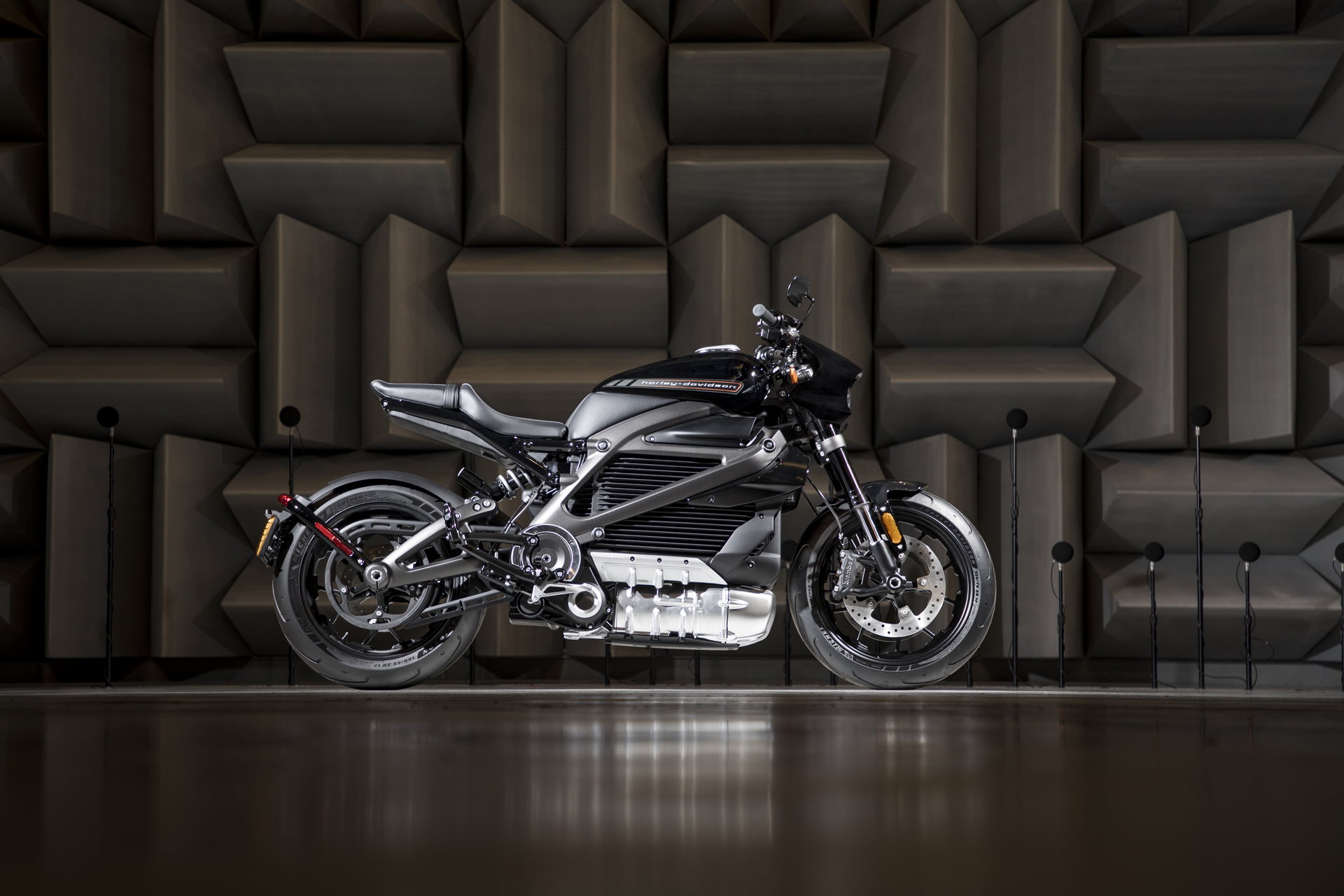
Electric motorbikes: FAQs
Q: Is there a Tesla electric motorcycle?
A: While Elon Musk has said electrification needs to come to every vehicle segment, he also said Tesla wouldn’t do an electric road bike, because it would be too dangerous. Musk explained he was involved in a nearly fatal motorcycle accident when he was 17, and presumably that has turned him off from the concept. However, Musk did suggest an electric dirt bike from Tesla could launch at some point in the future. The company also has an electric ATV in the works. Dubbed Cyberquad, it should hit the market at the same time as the Cybertruck.
Q: How fast can electric motorbikes go?
A: The fastest production electric motorcycle is the Lightning LS-218, which was clocked at an incredible 218mph (351km/h). The LS-218 can go 0 to 60 mph in 2.2 seconds and 0 to 100mph in 5.5 seconds, and it’s also street legal.
As for the fastest electric motorcycle ever, that title is currently held by the Voxan Wattman, a custom bike fitted with a Formula E motor generating an insane 362hp. The Wattman hit 228.05 mph (366.94km/h) in October 2020, and the team developing it said it could potentially hit almost 250mph (400km/h) on a longer track.
Q: Are electric motorcycles good for beginners?
A: Most electric motorcycles are simpler to operate than gas bikes, as they lack a clutch. You just control the acceleration and brakes, and use the handlebar to turn in the direction you want. One thing to know about is the instant torque, which could surprise some riders. Electric motorbikes are also easier to maintain.
Read next: The best electric skateboards
And that wraps up our electric motorcycles overview. Stay tuned for updates.